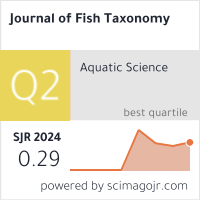Study of Inhibition of Root-Knot Nematode (Meloidogyne incognita) in Tomato Plants by the Effect of Extracts from Certain Wild Plants
Keywords:
Plant extracts, Colocynth, Calotropis procera, Sunflower, Root-knot nematode, Meloidogyne incognita, Tomato plant.Abstract
This study aims to determine the effectiveness of extracts from some wild plants commonly found in the desert regions of the south against the root-knot nematode Meloidogyne incognita, which infects tomato crops. The fruits of the colocynth plant, as well as the leaves and flowers of the sunflower plant and the leaves and fruits of the Calotropis procera plant were collected to prepare the plant extracts. The second-stage larvae (2 (J) of the root-knot nematode that infects tomato were obtained. The perineal model morphologically identified them. Laboratory results showed that second instar larvae were affected when treated with concentrations of (30, 20 and 29)% of wild plant extracts (colocynth, sunflower, Calotropis procera) for 3 days at laboratory temperature. This led to their movement stopping. The highest level of dead nematodes reached 100% at high concentrations for both colocynth, sunflower and Calotropis procera plant extracts, with an average of (30, 20 and 29)%. The results showed that all high concentrations of plant extracts had significant positive effects compared to the control on the number of root-knot nematodes (250 g/soil). There were differences in the highest number of root nodules in plants treated only with nematodes (326) nodes per plant root compared to the other concentrations of treatments. The best treatment was the 100% and 150% colocynth extracts, as no nodules formed on the roots. The greenhouse results showed that the use of these wild extracts, especially at high concentrations of 100%, resulted in a clear improvement in the vegetative growth of tomato plants treated with extracts of colocynth, sunflower, and Calotropis procera compared to the control.








